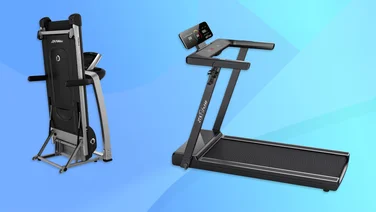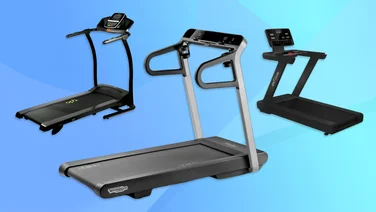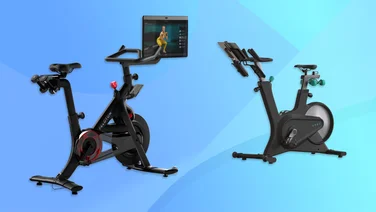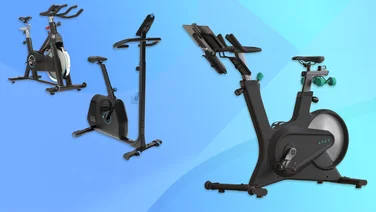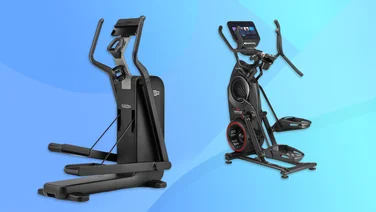To help us provide you with free impartial advice, we may earn a commission if you buy through links on our site. Learn more

The Jabra Sport Pulse is a clever pair of headphones that brings together music and heartrate monitoring into one convenient device. The HRM is integrated into one of the earbuds, which is supposed to produce a more accurate heartrate reading than alternative methods; we found readings were at least as accurate as the wrist-band monitor we compared it to.
Music is the natural companion to exercise, helping to really get your heart racing and your adrenaline pumping – it’s the reason many people choose to run or work out with headphones. A lot of runners also want to be able to monitor their heart rate, as this can be a great way to keep track of your fitness level as well as ensuring you’re training optimally. Typically this meant wearing an unwieldy chest-based heart rate monitor or a wrist-worn HRM. When you’re running you don’t want to be encumbered by too many devices, so it’s liberating to only need to grab one.
Save over 25% on the Jabra Sport Pulse headphones
The kind folks at Argos have knocked £35 off the asking price for these wireless headphones. Read our verdict below – and if you're interested, get clicking!
£95
Argos
The Sport Pulse uses a neckband design and connects to your smartphone through Bluetooth. There’s also convenient NFC one-touch pairing for phones that support it. There’s nothing more distracting than wires when you’re running, so it’s great that you don’t have to contest with the sound and nuisance of wires rubbing against your clothes as you go looking for a new personal best.
As a pair of in-ear headphones, the Sport Pulse blocks out most external noise. You’ll therefore want to be extra cautious of your surroundings if you’re running on the streets. You get four pairs of EarGel earbuds in a range of sizes, so you should be able to find a pair that comfortably fits. You also get three pairs of rubberised wings that help reduce movement and keep the buds locked into your ears. We’ve seen plastic used for wing tips on competing sports headphones, but the rubber used here was much more comfortable.
The Sport Pulse is slightly fiddly to get into your ears at first, and it takes a bit of practice, but eventually you get the hang of it. The cable connecting the two buds is rather long, although you do get a cable tie to pinch in some of the excess. However this creates a ‘pony-tail’ of excess wire, which isn’t particularly elegant.
There’s an integrated remote control and microphone for hands-free calls, skipping tracks and changing volume half way up the cable. The remote makes the weight imbalanced, however, so we found the headphone’s cables pulled on one side more than the other; this proved a little distracting during runs. You also get a carry case for safely storing your headphones when you aren’t exercising.
The Sport Pulse is designed to be used alongside the Jabra Pulse app, which is available on iOS and Android. The app is similar to the multitude of other running apps available for either operating system, and provides much of the same data. Naturally it takes readings from the heart rate monitor built into the headphones, but it also uses your smartphone’s GPS to track distance and pace. This is correlated with a built-in pedometer in the headphones for greater accuracy. However, during treadmill running we found the headphone’s distance differed from that of the treadmill; on most occasions the headphones sold us slightly short.
The app is easy to use and really well designed. It presents maps and historical data from your runs and keeps track of your personal bests, which is a great motivational tool. You can easily identify which heart rate zone you have been training in, whether it’s Fat Burn or Intense, and you can set goals based on variables such as distance or time. The app will also give you voice prompts in the headphones to let you know your pace and distance covered, which is handy and means you don’t need to look at your smartphone’s screen.
You can also use the app to conduct various fitness tests based on the heart rate monitor readings, including a resting heart rate test, the Rockport test and an Orthostatic test. The Rockport test will let you know your VO2 max, which is an indication of how optimally your heart, lungs and muscles are working together – essentially letting you know if you are overtraining and should take more recovery time. It’s also possible to use the heart rate data from the Sport Pulse with other running apps such as MapMyRun and Endomondo if you prefer those services, but overall we were impressed by the Jabra app’s comprehensive fitness tracking abilities.
Sound quality was certainly very respectable for a pair of sports headphones. There’s a decent amount of bass, which will really help get your heart racing, while mids and trebles are suitably crisp. The Sport Pulse has a slight tendency to sound bright at louder volumes, but it was never uncomfortable. These headphones aren’t designed for critical listening and the nuances of its sound won’t be a critical concern when running, but they’re more than good enough.
The real issue with the Pulse is its battery life, which is only around four hours. This means you’re having to remember to charge them very often and it rules them out for regular listening. You’ll really only use these for when you’re running, rather than as your go-to pair of headphones for commuting or daily listening. The Pulse app does give a good indication of how much charge is left, however, so with forward planning you shouldn’t get caught short.
At £200, the Jabra Sport Pulse sounds expensive but they’re both cheaper and more convenient than buying a pair of sport headphones and separate heart rate monitor. Compared to a pair of sport headphones, such as the Blue Ant Pump HD Sportbuds, the Pulse is more comfortable and obviously has the edge with its heart rate monitoring. It’s just a shame that battery life means the Sport Pulse stumbles at the finish line.



